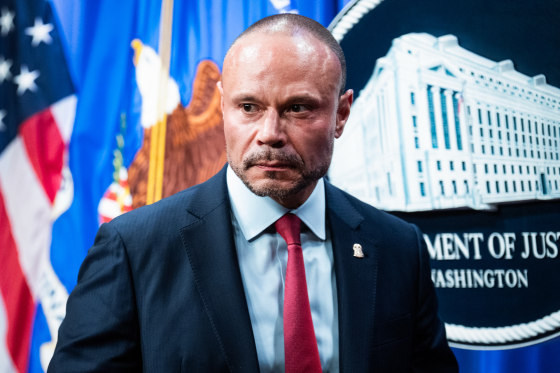In a strong display of bipartisanship, the U.S. Senate has passed legislation aimed at addressing a longstanding gap in federal protections for the families of public safety officers. Introduced by Senator Catherine Cortez Masto (D-NV) and Senator Mitch McConnell (R-KY), the bill received unanimous support from both parties and is now awaiting consideration in the House of Representatives.
The measure is part of a broader push to modernize and expand the Public Safety Officers’ Benefits (PSOB) Program, which provides federal benefits to families of officers who are killed or permanently disabled in the line of duty. Over the years, the PSOB Program has served as a lifeline for families experiencing devastating losses—but many lawmakers and public safety advocates have argued that the current law is incomplete and unjust in certain circumstances.
Supporters of the legislation argue that the federal government has an obligation to care for the families of officers who face lethal threats because of their service, regardless of whether the officer was still actively serving at the time of the attack. They emphasize that an officer’s badge does not stop being a target just because they retire.
“This is about honoring service, not splitting hairs over paperwork,” said Senator Cortez Masto. “When someone is murdered because they once wore the uniform and stood for the rule of law, their family should not be left behind by the system that claims to support them.”
Despite the strong vote in favor, the bill emerged from a broader package of seven pro-law enforcement proposals that were introduced as part of an effort to enhance officer safety, improve recruitment, address mental health, and modernize federal support systems. Only two bills passed the Senate—this legislation and the Improving Police CARE Act, which focuses on data-driven strategies to strengthen community-based policing models.
https://twitter.com/ChuckGrassley/status/1950291673231098198
The other five bills were blocked following objections from Senator Cory Booker (D-NJ), who reportedly raised concerns about certain policy provisions. According to Senate Judiciary Committee Chairman Chuck Grassley (R-IA), Booker’s opposition was tied to a broader debate over federal funding for sanctuary cities. Grassley criticized the move as an unnecessary obstruction of widely supported efforts to protect police officers and support their families.
Among the blocked bills were proposals to provide better protective tools for officers exposed to dangerous substances, increase funding for mental health care, modernize programs aimed at stopping internet crimes against children, support the hiring of retired officers for civilian law enforcement roles, and incentivize local recruitment within underserved communities.
The bill that did pass—now heading to the House—addresses a glaring loophole in the PSOB Program.
It is named in honor of Chief Herbert D. Proffitt, a Korean War veteran and career law enforcement officer who served more than 55 years before retiring in 2009 as chief of police in Tompkinsville, Kentucky. In August 2012, Chief Proffitt was shot and killed in his own driveway by a man he had arrested ten years earlier. Investigators determined that the murder was an act of revenge, directly linked to Proffitt’s past service in uniform.
Despite the clear motive, Proffitt’s family was denied PSOB benefits because he was no longer an active officer at the time of his death. Under the previous rules, benefits were strictly limited to officers killed while on duty or injured in the line of duty. The new legislation directly addresses this flaw, ensuring that families of retired officers targeted because of their service are no longer excluded.
“This family lost their husband, their father, their hero—because of the badge he wore,” said Cortez Masto during Senate remarks. “To tell them they don’t qualify for support just because he had retired is both cruel and illogical.”
The passage of the Chief Herbert D. Proffitt Act has drawn praise from across the political spectrum. Representative Dan Goldman (D-NY) called the bill “commonsense legislation” and urged swift action in the House.
“At a time when partisan gridlock dominates Washington, it’s encouraging to see both parties come together to do the right thing,” Goldman said. “We have a responsibility to support the families of those who pay the ultimate price for our safety—even if that sacrifice comes after their service ends.”
The bill is expected to be taken up by the House after the August recess. If passed, it would represent a meaningful reform to a vital federal support program and a recognition that the risks of public service do not end at retirement.

Emily Johnson is a critically acclaimed essayist and novelist known for her thought-provoking works centered on feminism, women’s rights, and modern relationships. Born and raised in Portland, Oregon, Emily grew up with a deep love of books, often spending her afternoons at her local library. She went on to study literature and gender studies at UCLA, where she became deeply involved in activism and began publishing essays in campus journals. Her debut essay collection, Voices Unbound, struck a chord with readers nationwide for its fearless exploration of gender dynamics, identity, and the challenges faced by women in contemporary society. Emily later transitioned into fiction, writing novels that balance compelling storytelling with social commentary. Her protagonists are often strong, multidimensional women navigating love, ambition, and the struggles of everyday life, making her a favorite among readers who crave authentic, relatable narratives. Critics praise her ability to merge personal intimacy with universal themes. Off the page, Emily is an advocate for women in publishing, leading workshops that encourage young female writers to embrace their voices. She lives in Seattle with her partner and two rescue cats, where she continues to write, teach, and inspire a new generation of storytellers.









